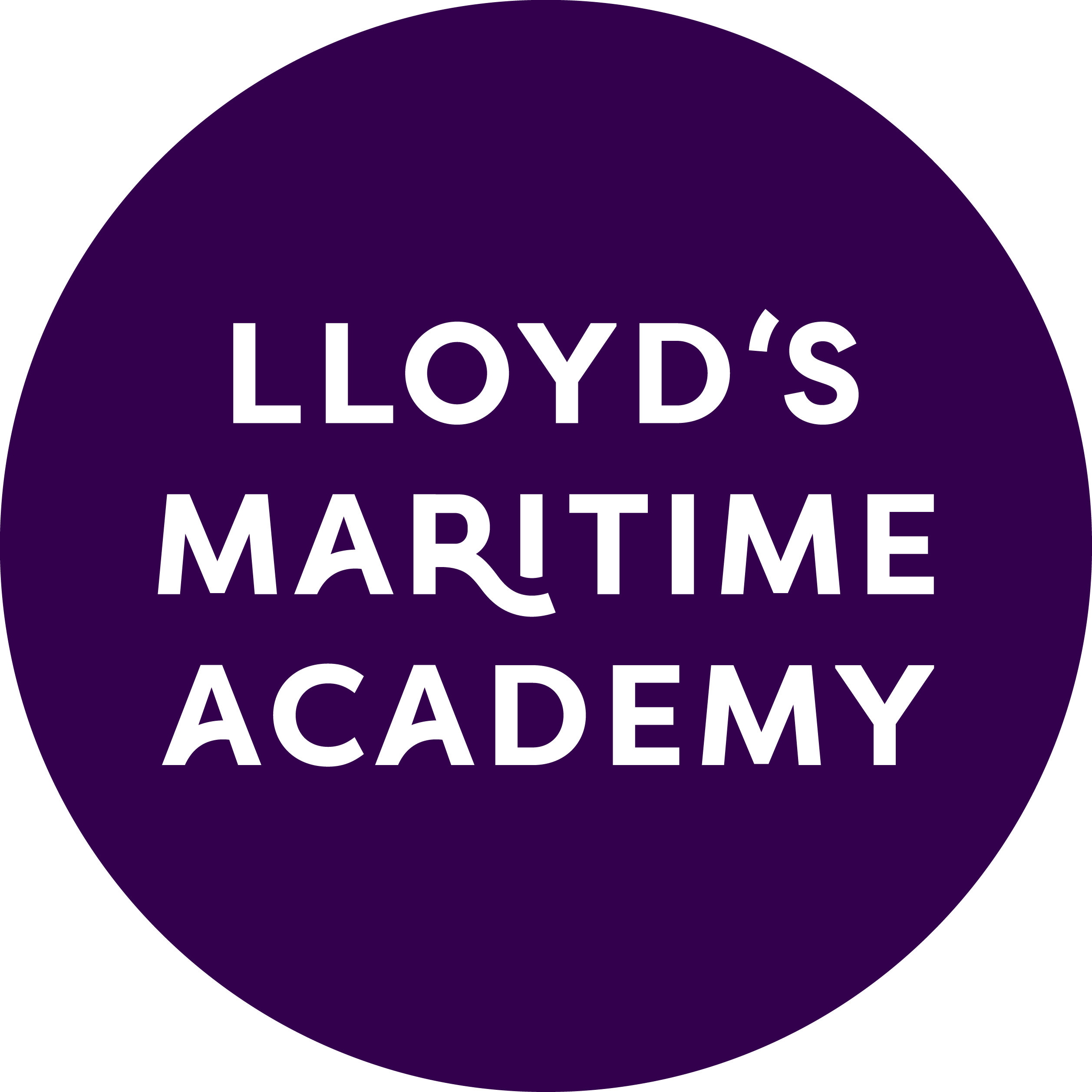
Anyone for coffee?
Lloyd's Maritime Academy is the only higher education training institution that can trace its roots back to the origins of maritime trade, commerce and insurance in 18th century London, where the Lloyd’s name fist became associated with safety and quality in the maritime world.
In the late 17th century and 18th century, business people in London rarely had their own offices but instead met their customers suppliers and partners in public places to do business.
At the time coffee was very much in fashion throughout Europe...
...and a large number of coffee houses we're doing a thriving trade throughout London. These became a favourite place for business to be done, and consequently many trades and industries focused on one particular coffee house. For shipping, that coffee house was called Lloyd’s on Lombard in the Centre of the City of London, and was owned and run by an enterprising gentleman called Edward Lloyd. This coffee house was first mentioned in records in 1689.
Edward Lloyd understood the benefits of giving customers added value and so he did everything he could to encourage maritime professionals to his coffee house. Initially most of the trade done at his tables was between shipowners and cargo owners, matching up ships with cargoes. Edward Lloyd realised he could encourage his trade by producing a Pamphlet that documented each ship coming into the port of London that day, where it was bound for, the name of the owner and captain, and how much cargo capacity it had.
1734
After Lloyd's death in 1713 his coffee house was inherited by his head waiter, William Newton, who married one of Lloyds daughters. The coffee house remained in the family for many generations. Lloyd’s List was founded in 1734 by family member and then owner of Lloyd's coffee house in order to give customers information about ship movements in the Port of London, although Edward Lloyd himself had published similar pamphlets 35 years before.


Lloyd's Register of Ships
Of course, the owners of the ships and the owners of the cargo also needed insurance but the underwriters (those who wrote their name under the bottom of contracts to confirm they are acting as the insurer, hence the term “underwriter”) also came to Lloyd’s coffee house. These people did not know the individual ships, and how safe they were, and so found it difficult to determine a premium for the insurance. So Lloyd’s coffee house employed an ex-captain to go down to the port of London every day and rate the condition of the ships that he saw. He then entered this information in a register book that was kept in the coffee house. This became Lloyd’s Register of Ships, later renamed as Lloyd’s Register.
1871 -1978
In 1871, the British parliament passed the “Lloyds Act” to make the Lloyd’s of London organisation an official business entity, thereby also restricting use of the name to its own underwriters. This included including Lloyds List, published by Lloyds of London Press.
In 1978, Lloyd’s List began delivering training to the Maritime industry, under the name Lloyd’s Maritime Academy.


Lloyd's Maritime Academy today
Lloyd’s Maritime Academy is the oldest continuously running distance learning provider for the maritime industry, and is the only training provider entitled to use the Lloyd’s name, which is a registered trademark incorporated by the Lloyd's Act 1871.
Informa was formed in 1998 by the merger of IBC Group Plc and Lloyd’s of London Press Ltd. Informa PLC is listed on the London Stock Exchange and is a constituent of the FTSE 100 Index. It has offices in 43 countries and around 11,000 employees. Informa owns numerous brands including CRC Press, Routledge, and Taylor & Francis, as well as Lloyd’s Maritime Academy.